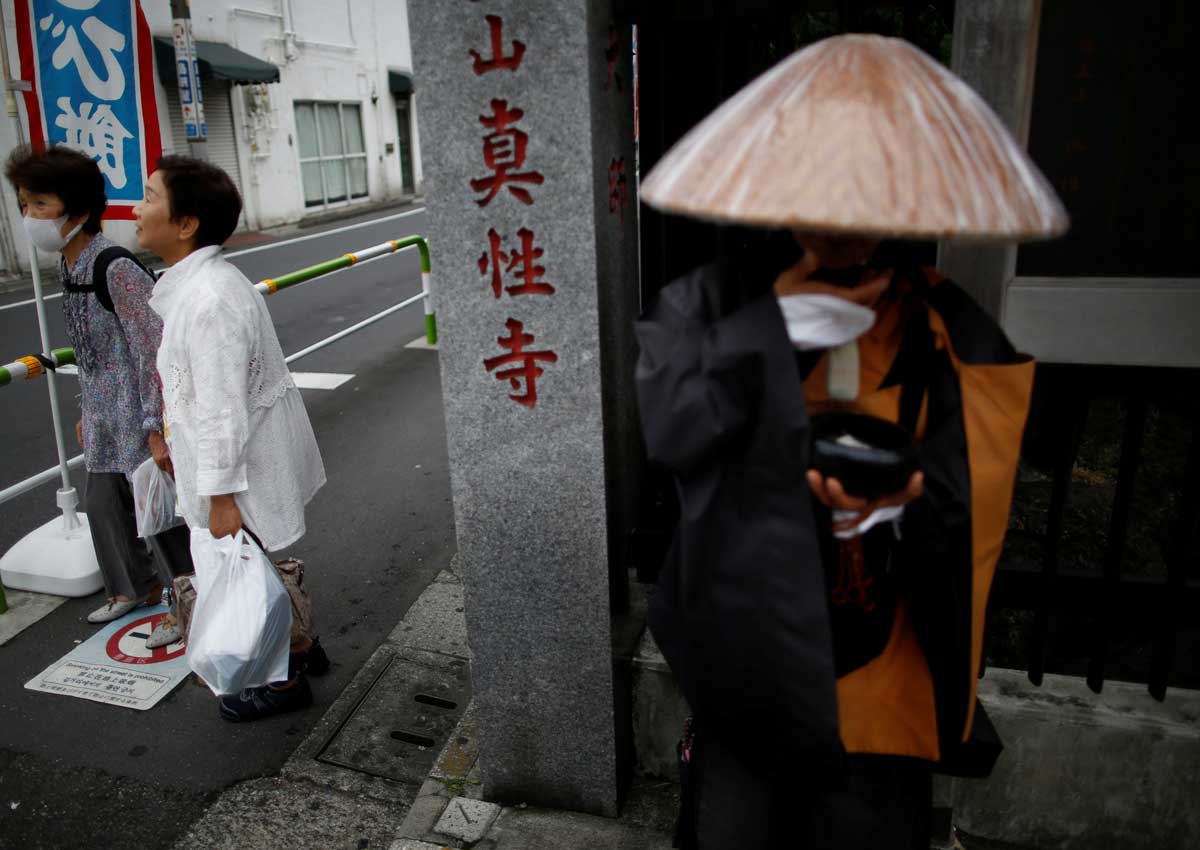MORE people in Japan are going online to arrange for monks to hold funerals and Buddhist memorial services, instead of using those from their family temples.
The popularity of the Internet services is fuelled by an easy-to-understand pricing system and people’s growing detachment from family temples.
Some Buddhist groups denounce the service, saying that it “commercialises religious acts”.
A 48-year-old part-time worker tapped on monk-dispatching service Terakuru to hold a Buddhist memorial service at a temple in Osaka last month for her late father.
The fee was 42,000 yen (S$552) and covered sutra chanting, a service to lay the remains to rest, sect designation, gratuity and other items.
“We could properly pay tribute to my father. The pricing was easy to understand,” the woman said.
Terakuru started in 2012 and has 450 temples on its register.
Monthly users of the service have risen from an initial 150 to 500.
Tomomi Hatta, general manager of sales at management company Uniquest Online in Osaka, said: “When monks are eager to provide superior service, they try to give Buddhist sermons that are easily understood. That gives users satisfaction.”
Dispatch monk services with fixed-rate pricing have become noticeable over the last five or six years.
Today, scores of companies offer such services.
In December, major Internet retailer Amazon Japan G.K. began dealing with Obosan-Bin, or monk post, in Tokyo. It is offered by Minrevi, which is involved in the funeral industry.
The service has attracted considerable publicity.
One reason for the trend is that more people are no longer affiliated with a family temple.
They are also unsure what is a standard cost for funeral services, as prices for a dharma can vary widely, from 150,000 to one million yen.
In a survey of 500 people aged above 40 that was done last year by Jiinkeiei.com, 64 per cent said they did not belong to any temple.
Of those who belonged to a temple, half were dissatisfied with theirs. Some 80 per cent of those complaints were related to financial issues, such as expensive offerings.
Meanwhile, running a temple is increasingly difficult because of ageing supporters and a decline in the number of younger members.
Said Katsuhiko Enomoto, 52, chief priest of the Saieiji temple Tokyo branch: “We don’t know what it will be like in 10 years’ time.
“Many monks have a sense of crisis about the future.”
His temple has registered with a dispatch monk service to boost its finances.
But the country’s Buddhist monk society is generally against these services.
The Japan Buddhist Federation said: “Fixed-price specification turns religion into a business.”
Earlier in March, the federation asked Amazon to stop dealing with the services.
While the offerings received by religious institutions are tax-free, dispatch services conducted through businesses are taxable.
Amazon refused to reveal its response to the federation’s request and continues to offer the services.

Get MyPaper for more stories.





